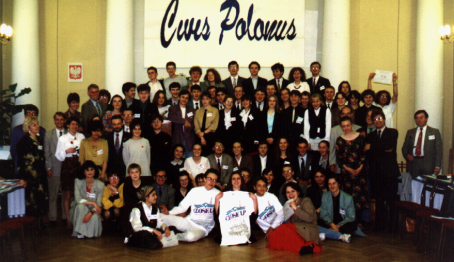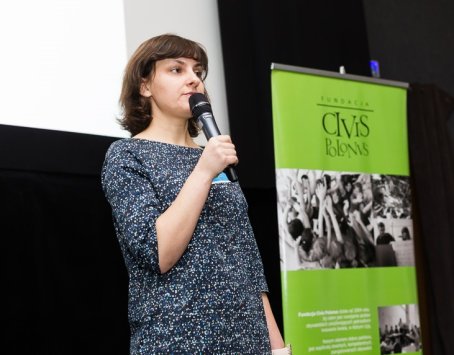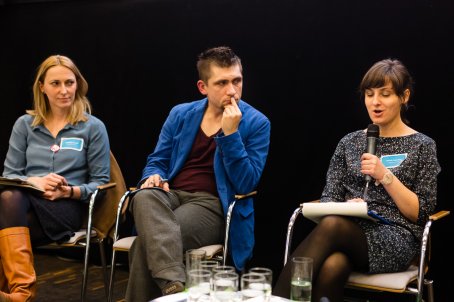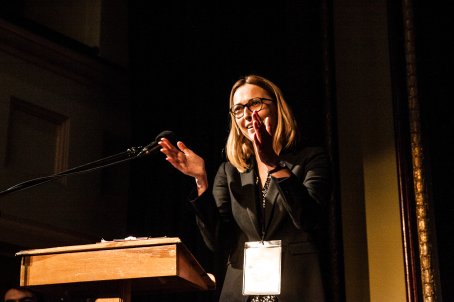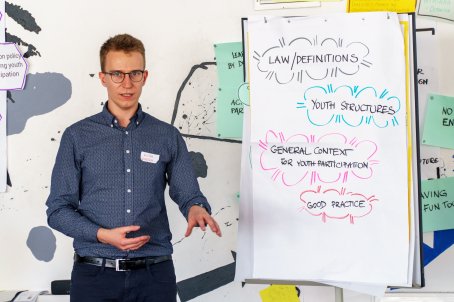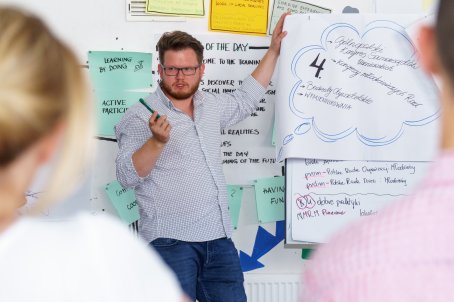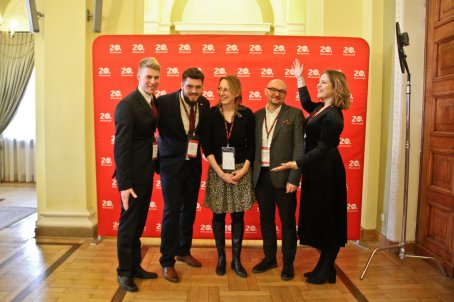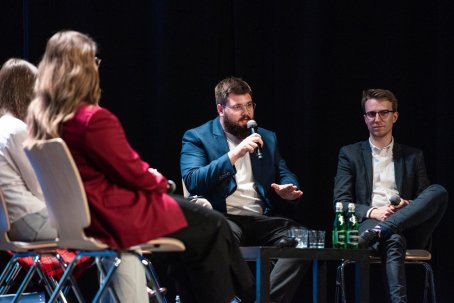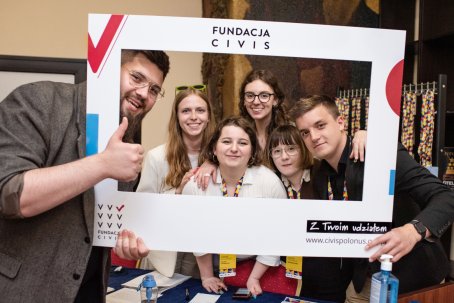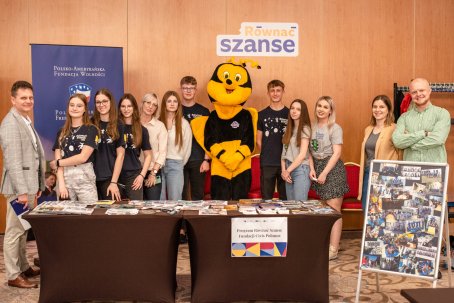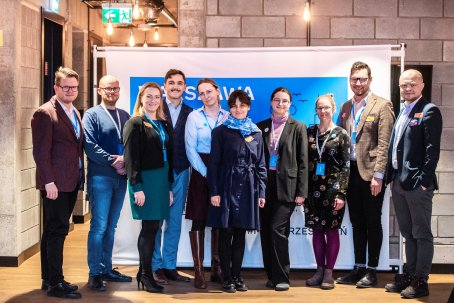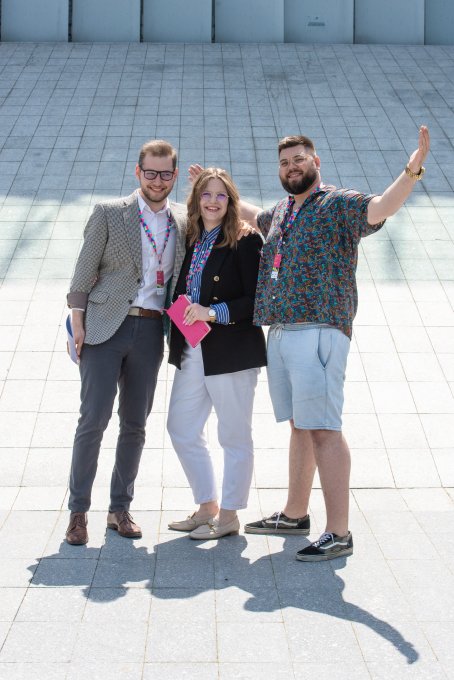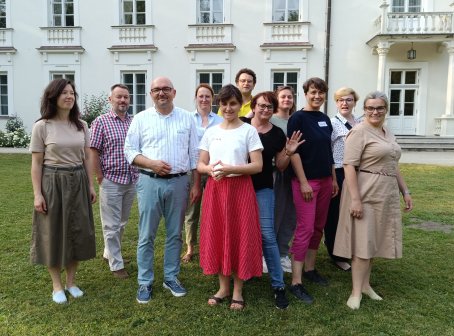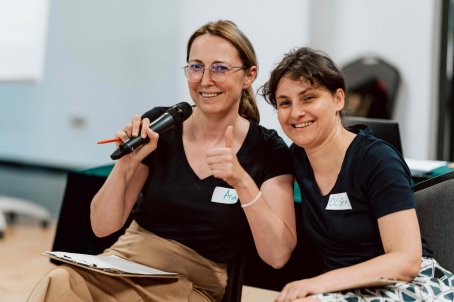About Civis
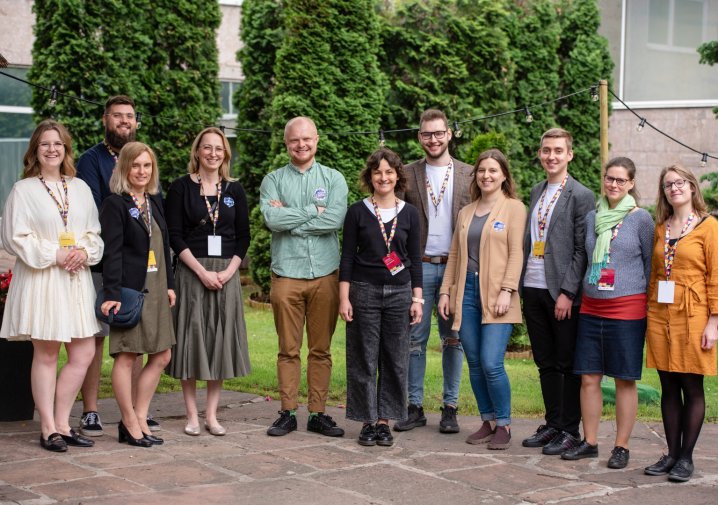
Our story
The Civis Polonus Foundation was established in 1994 by Jacek Kowalski, Jacek Królikowski Tomasz Masny and Cezary Trutkowski, but began its actual activities in 2004.
The founders became acquainted through their participation in the ‘Civic Education in a Democratic Society’ programme run by the Ministry of Education and The Mershon Center, The Ohio State University in the early 1990s. Its aim was to create a curriculum for teaching civic education in Polish schools.
In the spring of 1994, the future ‘founding fathers’ co-led an educational project called ‘Civis Polonus’ or Polish Citizen. Over the course of several days, more than 30 young people from all over Poland learnt about central institutions, attended meetings with politicians and social activists, and took part in a simulation of a Senate session. Participants in the programme included the current presidents of the foundation, as well as Adam Bodnar - the current Minister of Justice and Ombudsman in 2015-21. After the success of the project, it was decided to further develop civic education in a more official form. This is how the Civis Polonus Foundation was officially established.
The activities of the Foundation since 2004 have been managed as a board by Olga Napiontek, Joanna Pietrasik and Monika Szaniawska (until 2010).
The founders became acquainted through their participation in the ‘Civic Education in a Democratic Society’ programme run by the Ministry of Education and The Mershon Center, The Ohio State University in the early 1990s. Its aim was to create a curriculum for teaching civic education in Polish schools.
In the spring of 1994, the future ‘founding fathers’ co-led an educational project called ‘Civis Polonus’ or Polish Citizen. Over the course of several days, more than 30 young people from all over Poland learnt about central institutions, attended meetings with politicians and social activists, and took part in a simulation of a Senate session. Participants in the programme included the current presidents of the foundation, as well as Adam Bodnar - the current Minister of Justice and Ombudsman in 2015-21. After the success of the project, it was decided to further develop civic education in a more official form. This is how the Civis Polonus Foundation was officially established.
The activities of the Foundation since 2004 have been managed as a board by Olga Napiontek, Joanna Pietrasik and Monika Szaniawska (until 2010).
Our values
We work systematically. We are an organisation that understands that change in civic education requires patience and a long distance. That is why we strive to improve and deepen the selected topics in which we become experts. This is exemplified by our three main areas of activity: youth councils, student self-governance and civic libraries.
We are innovative. We are able to see the potential for strengthening civic competences in any institution - school, library, office, etc. - and create a programme for their civic action.
We work within the system. We want civic education to be part of the law and of the system, so that it is systematic rather than action-based. We are keen to find civic education mechanisms that respect local traditions and Polish conditions. We do not directly transfer participatory models or ‘innovations’ from other communities or countries.
We work according to the principle: innovation - implementation - reflection - dissemination. We believe that the mission of a non-governmental organisation is to propose new solutions, then thoroughly test them in practice, and finally subject them to evaluation and reflection. We disseminate proven solutions and introduce them on a large scale. In the final stage, we work with policy makers and engage in advocacy activities.
We work with a wide variety of partners. We teach what should be the content of adequate civic education and what approaches and methods are effective in a given context.
We like to work longer with a community. By doing so, we help make a real difference and create a deep change.
We analyse and act. Civic education is an area that is sensitive to various types of political and civilisational change. We therefore analyse the transformations of the public sphere on an ongoing basis so that our civic education proposals actually empower individuals in their civic engagement.
We share our knowledge and experience with other NGOs. We want to contribute to building the strength of the NGO sector in the area of civic education.
And all the time, we ensure that the Foundation is managed ethically and efficiently so that it has the capacity to fulfil our mission.
We are innovative. We are able to see the potential for strengthening civic competences in any institution - school, library, office, etc. - and create a programme for their civic action.
We work within the system. We want civic education to be part of the law and of the system, so that it is systematic rather than action-based. We are keen to find civic education mechanisms that respect local traditions and Polish conditions. We do not directly transfer participatory models or ‘innovations’ from other communities or countries.
We work according to the principle: innovation - implementation - reflection - dissemination. We believe that the mission of a non-governmental organisation is to propose new solutions, then thoroughly test them in practice, and finally subject them to evaluation and reflection. We disseminate proven solutions and introduce them on a large scale. In the final stage, we work with policy makers and engage in advocacy activities.
We work with a wide variety of partners. We teach what should be the content of adequate civic education and what approaches and methods are effective in a given context.
We like to work longer with a community. By doing so, we help make a real difference and create a deep change.
We analyse and act. Civic education is an area that is sensitive to various types of political and civilisational change. We therefore analyse the transformations of the public sphere on an ongoing basis so that our civic education proposals actually empower individuals in their civic engagement.
We share our knowledge and experience with other NGOs. We want to contribute to building the strength of the NGO sector in the area of civic education.
And all the time, we ensure that the Foundation is managed ethically and efficiently so that it has the capacity to fulfil our mission.
Our experience:
0
years
of experience
0
projects
implemented for the benefit of civil society
0
participants
in schools, offices, libraries and local communities
Sprawozdania merytoryczne fundacji
2024
PDF - 3.58 MB
download
PDF - 3.58 MB
2023
PDF - 33.54 MB
download
PDF - 33.54 MB
2022
PDF - 11.34 MB
download
PDF - 11.34 MB
2021
PDF - 9.01 MB
download
PDF - 9.01 MB
2020
PDF - 1.07 MB
download
PDF - 1.07 MB
2019
PDF - 2.71 MB
download
PDF - 2.71 MB
2018
PDF - 2.84 MB
download
PDF - 2.84 MB
2017
PDF - 2.87 MB
download
PDF - 2.87 MB
2016
PDF - 2.06 MB
download
PDF - 2.06 MB
2015
PDF - 1.15 MB
download
PDF - 1.15 MB
2014
PDF - 2.13 MB
download
PDF - 2.13 MB
2013
PDF - 1.92 MB
download
PDF - 1.92 MB
2012
PDF - 1.88 MB
download
PDF - 1.88 MB
2011
PDF - 1.03 MB
download
PDF - 1.03 MB
2010
PDF - 721.91 KB
download
PDF - 721.91 KB
2009
PDF - 3.79 MB
download
PDF - 3.79 MB
2008
PDF - 619.53 KB
download
PDF - 619.53 KB
2007
PDF - 5.75 MB
download
PDF - 5.75 MB
Sprawozdania finansowe fundacji
2024
PDF - 315.20 KB
download
PDF - 315.20 KB
2023
PDF - 2.89 MB
download
PDF - 2.89 MB
2022
PDF - 3.15 MB
download
PDF - 3.15 MB
2021
PDF - 2.97 MB
download
PDF - 2.97 MB
2020
PDF - 374.59 KB
download
PDF - 374.59 KB
2019
PDF - 1.68 MB
download
PDF - 1.68 MB
2018
PDF - 1.91 MB
download
PDF - 1.91 MB
2017
PDF - 3.17 MB
download
PDF - 3.17 MB
2016
PDF - 3.41 MB
download
PDF - 3.41 MB
2015
PDF - 3.65 MB
download
PDF - 3.65 MB
2014
PDF - 3.09 MB
download
PDF - 3.09 MB
2013
PDF - 531.51 KB
download
PDF - 531.51 KB
2012
PDF - 823.89 KB
download
PDF - 823.89 KB
2011
PDF - 2.44 MB
download
PDF - 2.44 MB
2010
PDF - 2.44 MB
download
PDF - 2.44 MB
2009
PDF - 1.91 MB
download
PDF - 1.91 MB
2008
PDF - 2.46 MB
download
PDF - 2.46 MB
2007
PDF - 1.73 MB
download
PDF - 1.73 MB
Foundation's bylaws (In Polish)
plik
PDF - 3.11 MB
download
PDF - 3.11 MB
